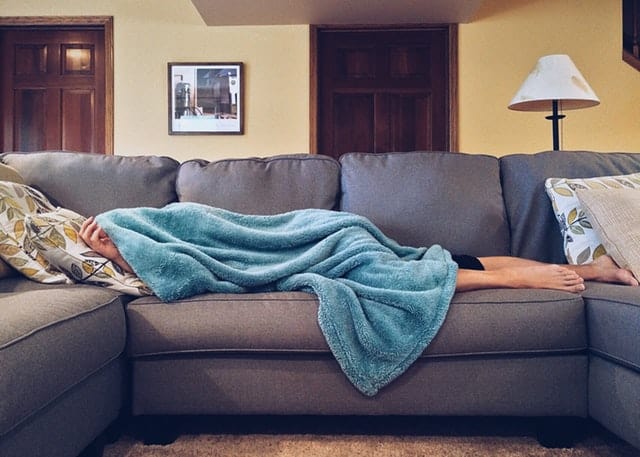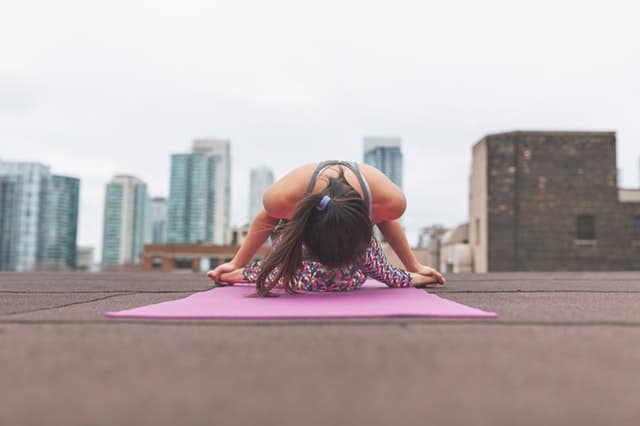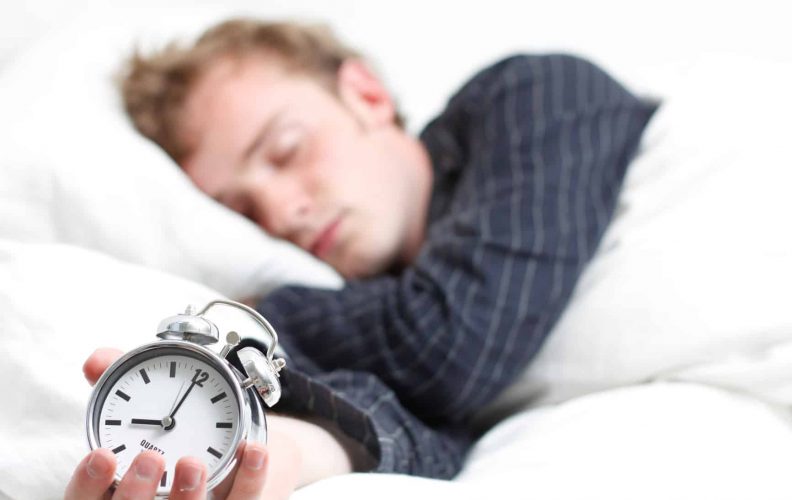Meditation and Breathing Tricks to Improve Sleep and Relax
Disclosure: We use affiliate links and may receive a small commission on purchases.
 Meditation and Breathing Tricks to Improve Sleep and Relax
thefitbay.com
Meditation and Breathing Tricks to Improve Sleep and Relax
thefitbay.com
In today’s extremely fast and competitive world, a large majority of people suffer from stress – whether it’s related to work, school, financial issues, illness, unemployment, someone’s death etc. According to the Centers for Disease Control and Prevention, approximately 40 million people in America suffer from chronic long-term disorders each year. An additional 20 million people experience sleep problems that occur occasionally. Sleep deprivation is thus becoming increasingly common and the digital revolution has now made it even more difficult for people to get a comfortable night’s sleep.
How to Fall Asleep Faster and Better

There is no doubt that some people take on unnecessary stress and sometimes, a little stress can be a good motivator to perform well or to encounter certain challenges and difficulties in life. However, ongoing and repetitive stress can be very harmful.
People with chronic stress are more likely to have a heart attack, high blood pressure and diabetes. Long-term stress can also have an impact on lifespan and there is a risk that people who are under consistent stress can die prematurely. The problem is that today, whenever someone complains of stress or anxiety, sleep problems or tension, they expect instant treatment through miracle pills. That is why the number of people on anti-depressants and sleep stimulants is consistently on the rise. In reality, most of these drugs are not only expensive but also have several adverse effects with long-term use. That is why it is a better idea to use alternate strategies to relieve stress.
Two of the most effective strategies for stress relief include meditation and breathing techniques.
Meditation

It has been proven time and again that meditation, when performed regularly, can help reduce stress and also bring contentment and inner peace. To be completely effective, meditation should be used continuously, even if for a few minutes only. The biggest advantage of mediation is that anyone can do it, irrespective of age or gender, anywhere and at any time. It is a misperception that meditation can only be performed in a quiet place with no sounds and distraction. While that can definitely improve your experience, this is not a strict restriction and you can meditate even on the bus, subway or on the airplane, if need be. It is a technique that is easy to adopt, free to use and does not require any investment in equipment or devices.
Meditation is a healing therapy that has been around for thousands of years. In the past, meditation was used to understand the sacred forms of life and origins of humans but today, it has evolved and is now well-known for its healing powers for the mind. Millions of people practice meditation to relieve stress and improve their emotional well-being. Meditation can help induce a deep state of relaxation, serenity and peace of the inner mind. In addition, it can help people sleep better by relaxing their minds, improving their inner peace and by giving them a feeling of being refreshed.
Specifically for stress relief and improved sleep, mediation is recommending right before bedtime. It is important to find a comfortable body position in a quiet room to ensure complete relaxation. Beginners may find it difficult to meditate for long periods of time but once your mind and body becomes accustomed to it, you can easily meditate for hours. If stress is the issue or if you find it difficult to sleep, you should focus on that particular issue while meditating. Your goal should be to think positively and eliminate all the negative and jumbled thoughts from your mind.
Breathing Exercises

The benefits of meditation can be further enhanced if it is combined with slow and gentle breathing exercises. The logic behind breathing exercises is that by doing so, we basically change the way we breathe which in turn helps us change the way we feel and the way are body reacts to our external environment. Under normal circumstances, we inhale oxygen and exhale carbon dioxide using our diaphragm muscle. However, when we are stressed or anxious, we tend to over-breath. Our breathing pattern changes to short and shallow breaths instead of our usual deep breaths. What happens here is that instead of using our lungs to inhale and exhale, we begin to use our shoulders. This makes us even more stressed and our shoulders and our entire body becomes stiff and tight. Breathing exercises help our minds to calm down.
The simplest way to use breathing exercise to improve sleep and lower stress is to lie down in bed and take slow, deep breaths. This allows your body to calm down and to shut off that feeling of being on high-alert. You can thus start to relax and as you relax, your body automatically slows down and it becomes easier to fall asleep. The goal is to slow down your heart rate, normalize your breathing pattern and introduce a general sense of calmness.
Holistic breathing practices are fast becoming a very effective strategy for combatting stress, anxiety and insomnia. Relaxation breathing exercise before going to bed can help sleep better. Simply exhale through your mouth, close it and inhale through your nose. Count from 1 to 4. Hold your breath for 7 counts. Then exhale for 8 counts. Repeat this sequence three times to see a positive change in your body and mind.
Overall, both breathing and meditation are excellent strategies to combat stress and improve sleep. If you add yoga to the mix, you will automatically feel the positive changes in both your mind and body. Keep in mind that chronic insomnia may need to be treated with medicines but if you feel that you are suffering from internal anxiety and stress and by controlling that triggering factor, you can sleep better, you should try out these alternate strategies. Drugs can be helpful but it is a well-known fact that long-term drug dependency is not a good idea. There is no harm in trying something new, especially techniques that do not have any adverse effects on your body and do not require any monetary investment on your part.










